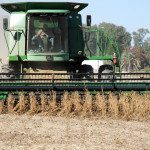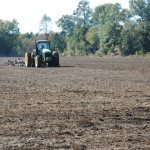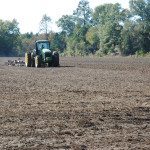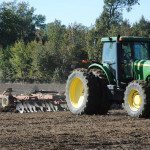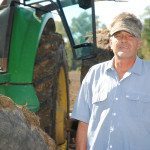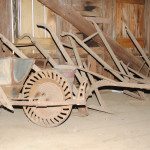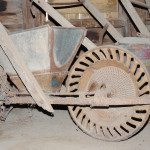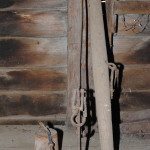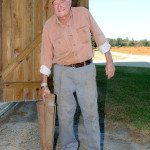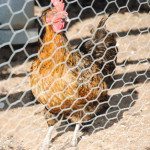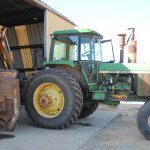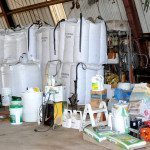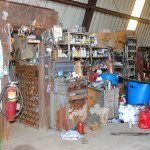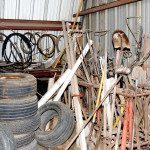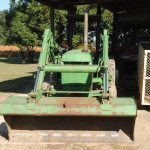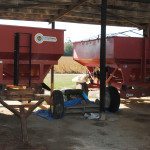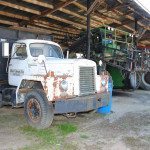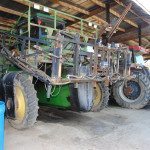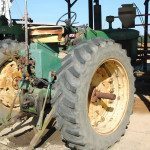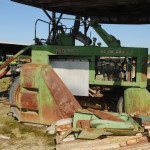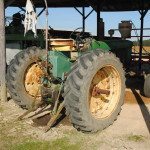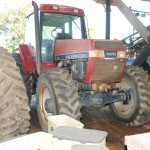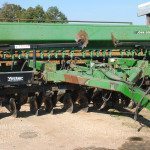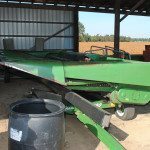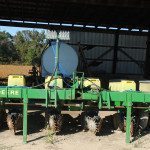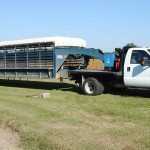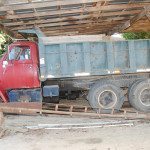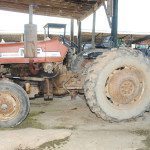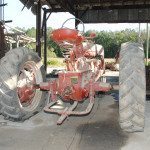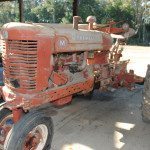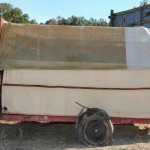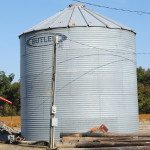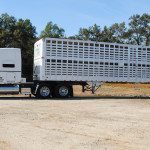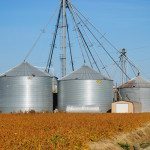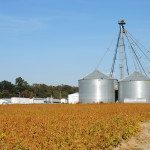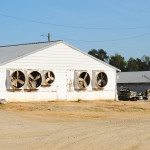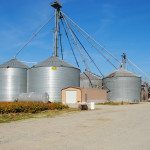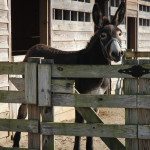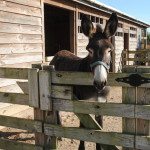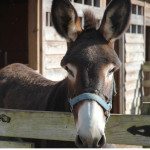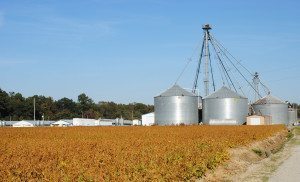
Robert and Shirley Coleman have been operating their family farm, located at 2533 Centerville Road, Latta, for 54 years. They hope to see their farm continue to operate for years to come.
Currently, Robert and his son, Rob, manage and operate the family farm.
Robert Coleman was reared on his family farm, where he was taught to farm by his father and his grandfather. He attended Mars Hill College for two years and had attended one year at N.C. State when his father’s health became so bad that he came home to the family farm. He has been there ever since.
Coleman currently farms 900 acres. His major crop is soybeans, but he also grows wheat and corn. At one time, he grew tobacco. He said nothing replaced the tobacco; he just planted more acres of all crops. Coleman and his partner, Richard Myers, C & M Hog Farm. C & M is an independent farrow to finish farm.
Times have changed since Coleman began farming. “I can remember working the fields with a mule and a plow,” said Coleman. “Then came the tractor. In the beginning, the tractors had open cabs and tarp umbrellas to shade you with and minimal operating controls,” Coleman recalled. “Now most tractors are closed cabs with air conditioning and radios. They have a GPS and many monitors and operating controls.”
Coleman said the biggest obstacle that he has had to face while farming is the weather. “Not enough rain can be devastating. Nothing can grow without water,” said Coleman. “On the flip side, too much rain can also be damaging. You cannot plant a crop in a wet field. If rain sets in at harvest time, you cannot gather the crop, and when it dries enough to get in the field, the crop is most likely damaged which results in lower yields and less money.”
When asked about the future of farming, Coleman said it holds many uncertainties.
One uncertainty is the weather. “Weather is always at the top of the list,” said Coleman. “Many farmers have some farms irrigated, but not likely all.”
Expense is also a factor. Coleman notes with the new improved equipment and technology comes large costs.
“Commodity markets seem now to me to be very unpredictable,” said Coleman. “You must constantly monitor the markets, weighing and evaluating many different situations including the world markets, world economy, and new products that may and will use the crops for non-food use.”
“In order to move and grow with the changing times of farming, you have to be willing to change with the times and always keep up with the industry.” As for his own farm, Coleman said his wish and vision would be for it to continue for years and years. He hopes that his family will be able to continue farming and make a good honest living working the land.
“My grandchildren for the past two years have been growing sweet corn to sell under the name Coleman Cousins Corn,” said Coleman.
“This has been a good experience for all of us. It’s nice to see them have an interest in lathe corn, asking questions and learning,” he said.
“This past year they were able to see and experience first hand how quickly things can change,” Coleman said. “They had, right up to harvest, a beautiful corn crop, and were ready to break corn within days. The deer also discovered their beautiful crop and helped themselves. Within days, they lost almost half the crop. So as the old saying goes ‘never count your chickens before they hatch.’ Welcome to farming.”
PHOTOS BY JOHNNIE DANIELS/THE DILLON HERALD



